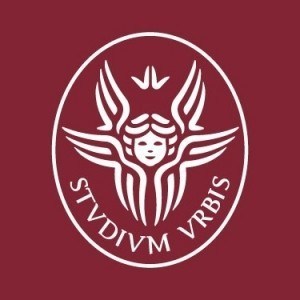Photos of university / #ucl
Biomedical Engineering at University College London provides students with a comprehensive education that combines engineering principles with medical and biological sciences. This interdisciplinary program is designed to equip graduates with the skills necessary to develop innovative solutions for healthcare challenges, including the design of medical devices, imaging systems, and rehabilitation technologies. Students will explore topics such as biomechanics, biomaterials, medical imaging, sensors and instrumentation, systems physiology, and bioinformatics, gaining a deep understanding of how engineering can be applied to improve patient care and medical diagnostics. The program emphasizes practical laboratory work, project-based learning, and real-world problem solving, fostering both technical proficiency and critical thinking. Throughout their studies, students have the opportunity to engage in cutting-edge research and collaborations with industry partners, preparing them for careers in medical device development, clinical engineering, research, or further academic study. The curriculum is designed to provide a strong foundation in engineering design, computer programming, and biological sciences, with an emphasis on innovation, regulation, and ethical considerations in healthcare technology. Graduates of the Biomedical Engineering program at UCL are well-equipped to contribute to advancements in medical technology and to address complex healthcare challenges globally. The university's location in London provides excellent access to leading hospitals, research institutes, and industry collaborators, enhancing the educational experience through numerous networking and internship opportunities. With state-of-the-art facilities and expert faculty, this program aims to develop graduates who are both technically competent and socially responsible, capable of making meaningful contributions to the biomedical field and to society at large.
In each year of your degree you will take a number of individual modules, normally valued at 0.5 or 1.0 credits, adding up to a total of 4.0 credits for the year. Modules are assessed in the academic year in which they are taken. The balance of compulsory and optional modules varies from programme to programme and year to year. A 1.0 credit is considered equivalent to 15 credits in the European Credit Transfer System (ECTS).
We offer the option of studying a three-year Engineering (Biomedical) BEng or a more in-depth four-year Engineering (Biomedical) MEng programme. The first two years of study for both programmes are identical and transfer between the two is possible up to the end of the second year. We advise applying for the MEng initially which makes it easier to defer your decision.
In your first year, you will receive an introduction to biomedical engineering, including electronics and mechanics, with mathematical modelling and analysis, which are needed to design and develop complex medical technologies.
In year two, you will build upon the skills and knowledge you have already gained and take modules in areas of biomedical engineering such as anatomy and physiology, physics and biomechanics. You will also select an optional minor from a range offered across UCL Engineering and beyond, including programming, entrepreneurship or a foreign language.
In your third year you will study further modules from biomedical engineering and from your optional minor stream, and undertake a major project linked to research strengths across UCL Engineering and UCL?s substantial healthcare partners.
This degree is part of the Integrated Engineering Programme (IEP), a teaching framework that engages students in specialist and interdisciplinary activities designed to create well-rounded graduates with a strong grasp of the fundamentals of their discipline and a broad understanding of the complexity and context of engineering problems. Students register for a core discipline, but also engage in activities that span departments so the development of fundamental technical knowledge takes place alongside specialist and interdisciplinary research-based projects and professional skills. This creates degrees encouraging professional development, with an emphasis on design and challenging students to apply knowledge to complex problems.
A levels
Grades
AAA-AAB
Subjects
Mathematics and Physics required; grade A in Mathematics preferred.
GCSEs
English Language and Mathematics at grade C. For UK-based students, a grade C or equivalent in a foreign language (other than Ancient Greek, Biblical Hebrew or Latin) is required. UCL provides opportunities to meet the foreign language requirement following enrolment, further details at: www.ucl.ac.uk/ug-reqs
IB Diploma
Points
36-38
Subjects
A score of 17-18 points in three higher level subjects, including Mathematics and Physics (grade 6 in Mathematics preferred), with no score lower than 5.
The English language level for this programme is: Standard
Funding options for the BSc Biomedical Engineering program at University College London include a range of financial support mechanisms designed to assist students throughout their studies. Undergraduate students at UCL can apply for various scholarships, bursaries, and loans to help cover tuition fees and living expenses. The university offers scholarships specifically for engineering students, which are awarded based on academic merit, financial need, or a combination of both. These include the UCL Undergraduate Bursary, which provides financial support to students from lower-income households, and subject-specific scholarships that may be available for outstanding applicants or those demonstrating exceptional potential in biomedical engineering.
In addition to university-funded financial aid, students are encouraged to explore external funding options. The UK government provides student loans which can be used to finance tuition fees and maintenance costs. These loans are available for eligible students and are repayable after graduation once income exceeds a certain threshold. International students, depending on their nationality, may also seek scholarships from external agencies, charitable organizations, or government sponsorships designed to support international students studying in the UK.
UCL also offers employer-sponsored sponsorship programs and bursaries for students who secure internships or sponsored placements during their course. Furthermore, students are advised to research various grant opportunities, philanthropy funds, and research council grants that can provide additional financial assistance, particularly for those involved in research projects or pursuing postgraduate studies subsequently.
Students are highly encouraged to utilize UCL's dedicated financial aid office for personalized advice and to ensure they are aware of all available options. Application deadlines and eligibility criteria vary depending on the specific funding source. Overall, students enrolled in the Biomedical Engineering program can access a comprehensive range of financial resources to support their educational journey, making high-quality technical education more accessible and affordable.
The BSc Biomedical Engineering program at University College London (UCL) offers a comprehensive curriculum designed to equip students with fundamental knowledge and practical skills in the interdisciplinary fields of engineering and medicine. The program integrates principles from electrical, mechanical, chemical, and biological engineering to develop solutions that improve healthcare technology and patient outcomes. Students are introduced to human anatomy and physiology, biomaterials, medical devices, signal processing, imaging, and systems biology, providing a solid foundation for innovative biomedical applications. UCL emphasizes a multidisciplinary approach, encouraging students to collaborate across engineering, biomedical sciences, and clinical disciplines. Throughout the course, students gain hands-on experience through laboratory work, projects, and internships, often collaborating with leading healthcare institutions and industry partners. The program aims to prepare graduates for careers in medical device design, biomedical research, healthcare technology development, and further postgraduate study. UCL's strong research environment, access to cutting-edge laboratories, and close links with hospitals and industry ensure students are engaged with current advances and real-world challenges in biomedical engineering. The program typically spans three years for full-time students and may include optional placements or study abroad opportunities, enhancing employability and global perspective. Graduates of UCL's Biomedical Engineering BSc are well-positioned to contribute to the rapidly evolving healthcare sector, advancing the design and implementation of medical technologies that improve quality of life worldwide.










